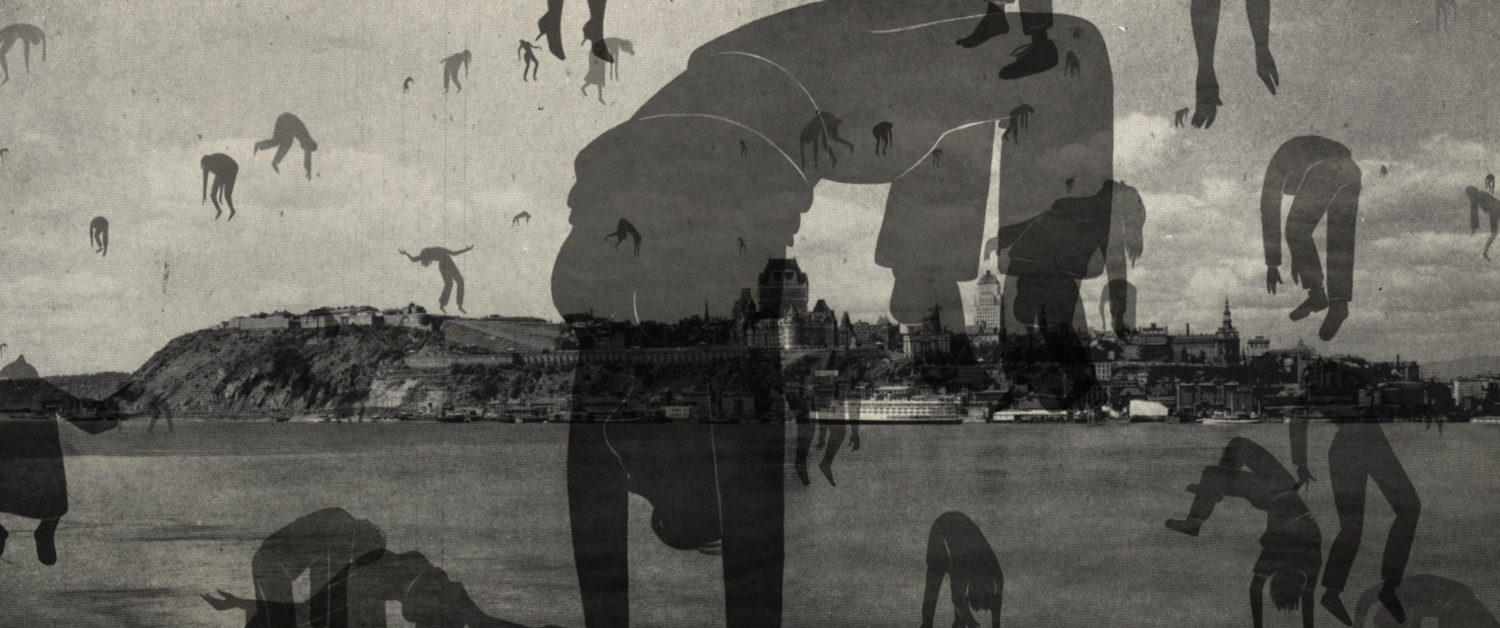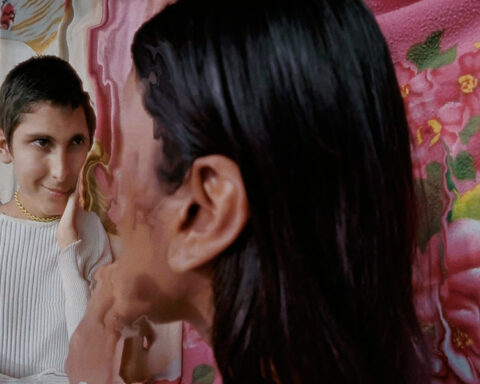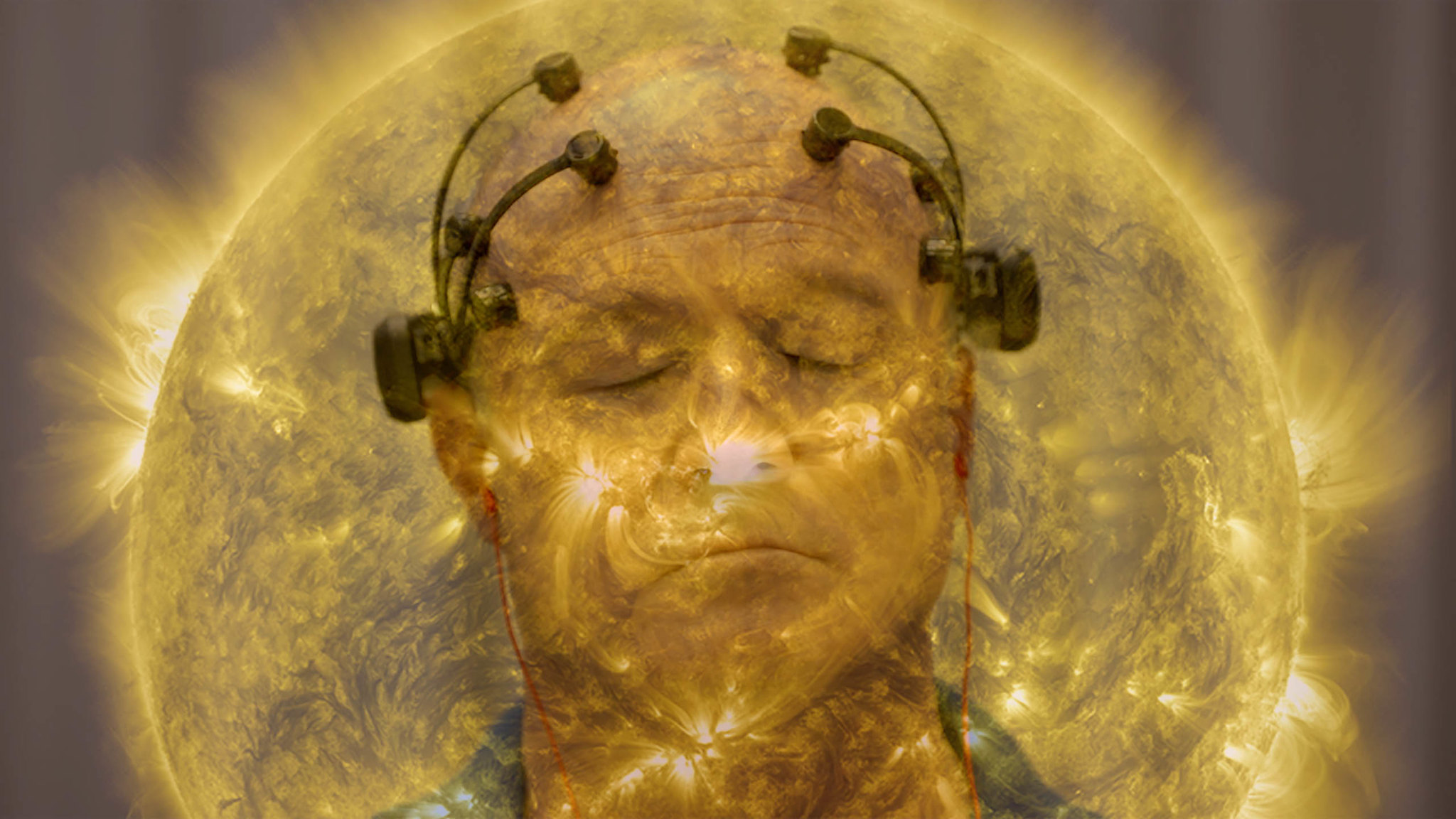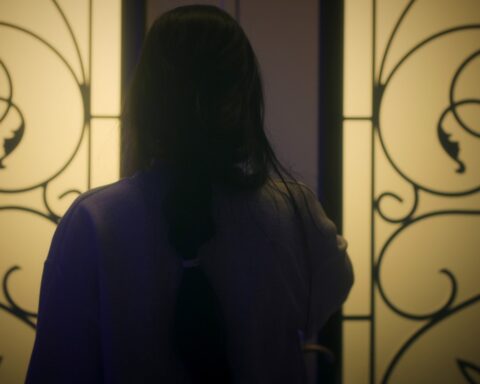Pre-recorded filmmakers’ introductions, virtual festival drinks and socially distanced awards ceremonies. It’s probably not what the newly appointed festival director Vanja Kaluđerčić, leaving her job as Director of Acquisitions at MUBI, had in mind for the 50th anniversary of the International Film Festival of Rotterdam (IFFR). The festival was definitely a weird ride, travelling to all four corners of the worlds from your living room, but the experiment turned out to be virtual success. It certainly inspired the programmers to select hybrid films that flirt with the dividing lines between reality and fiction that permeate our lives in times of pandemic chaos. Five documentaries with essayistic proclivity and collaborative approaches invite the audience to think and re-think their relation to the world by blending personal and political narratives, a solid stimulation for brains in lockdown.
Landscapes of Resistance
(Serbia/France/Germany, 95 min.)
DIr. Marta Popivoda
Landscapes of Resistance is the intimate and tender portrait of the first woman who joined the partisan resistance movement in Yugoslavia during World War Two, Holocaust survivor Sonja Vujanović, Marta Popivoda, with the help of the protagonist’s granddaughter Ana Vujanović, shot her ‘partisan’ documentary over a period of ten years.
The militant essay jumps back and forth in time, juxtaposing Ana’s written and sketched diary entries and recounted anecdotes of her 97-year-old Serbian grandmother. Cracks on the walls and curling wallpaper slowly fade into landscapes of her past, like the tattooed camp number waning on her sagging skin. Time passes but memories are vivid, and the parallels to contemporary politics are even more acute.
Notable absentees are the intentional lack of archival footage and a period soundtrack. Popivoda balances out the detailed descriptions of torture and experiences in Auschwitz with moments of quietude in the comfort of Sonja’s home. Purring cats and the care of helping hands draping a sweater of her shoulders create the necessary mental and emotional space to digest the amplitude and meaning of her past. The filmmaker connects the dots between then and today, resulting in lessons (still to be) learned and a fiercely antifascist pamphlet. A definite stand out at the festival.
Les Sorcieres de l’Orient
(France, 100 min.)
Dir. Julien Faraut
French director Julien Faraut specialises in sport documentaries. After a documentary on John McEnroe (The Realm of Perfection, 2018), he takes a deep dive into the world of a Japanese female volleyball team, known as the Witches of the Orient. Starting out in 1953 as the team of the factory they worked at, the group of women set out to win the Tokyo Olympics in 1964 and managed to hold the record of 258 consecutive wins to this day.
The pace is seemingly slow: Faraut isn’t afraid to repeat things. The personal recollections of the senior athletes, rendered as voice-overs with recent footage of the 70-year-old ladies in their daily sport routines at the gym or in the sport hall, are doubled down with archival footage from early Japanese and European broadcasts. Yet, the director doesn’t dwell aimlessly. The smart narration builds up tension and suspense, and the effort pays off. By the time the documentary reaches its conclusion, the Olympics of 1964, you’re on the edge of your seat hoping that every one of their vigorous smash balls will make it through the “iron curtain” of the USSR team.
The ‘Typhoon of the East’ quickly morphed into ‘Witches of the Orient’ when the team toured in Europe and accumulated their first tournament victories. The success of the athletes caused the rise of volleyball in Japan, and resulted in an increased production of sport anime. Faraut cleverly uses images of a playful series, interlacing them with more poetical explorations of the archival footage. Throughout, the soundtrack of French K-raw plays a key role. The final product allows for a brief contemplation on postwar Japan, mainly through a focus on the team’s paternal figure and jarringly tough coach, called the ‘demon.’ There are no flattering nicknames in this documentary.
Agate Mousse
(Lebanon, 68 min.)
Dir. Selim Mourad
Like Archipel, Agate Mousse is born out of a collaborative approach. It is also similarly indulgent in the freedom it allows itself. This essayistic documentary is the third instalment of a process that started in 2013, in which Sélim films his entourage, friends and house mates. The citizens of Beirut have had to endure a hard couple of years and 2020, with a massive non-nuclear explosion, a horrible economic inflation and the worldwide pandemic, has been particularly tough. It’s not surprising that the director developed anxieties issues revolving around death and disease. The first part focuses entirely on him, his medical check-ups and what seems to be a downward spiral. His death is formally translated through the use of a black oval framing of the lens, as one would expect to see around an obituary portrait.
His passing tuns out to be temporary-a narrative device—and merely a projection of the current societal dynamics in Lebanon. Agate Mousse testifies to the exodus of the Lebanese youth of the cities and the country. Students go abroad while others settle for good in the rural outskirts. On a micro level, the film also recounts the dissolution of a communal house where Sélim and his friends lived together for several years. The ones that are left behind, Tamara and Sélim (who play themselves), aren’t doing well. A series of alternative therapy sessions seem to string their lives together and emphasises the group’s volatile focus on the body and the self. The seven chapters of the film exude, at the same time, the intuitive desire to create and enjoy life despite the dire circumstances. Re-enactments of more pleasurable times in the communal house and nostalgic navel-gazing weave together Sélim’s musings on cyclical life and rebirth and Tamara’s thoughts on threesomes and abortion.
Feast
(The Netherlands, 83 min.)
Dir. Tim Leyendekker
In Feast, Dutch director Tim Leyendekker indulges in his desire to understand the underlying motivations of the Groningen man who purposely infected his partners with his own HIV-infected blood at Dutch sex parties between 2008 and 2012. Recurrent interludes of unconscious bodies of strangers, abandoned park benches and beaches in the middle of the night set the mood. It is grim and uneasy, appropriate for what occurred in the gay community ten years ago, but also for the way Leyendekker’s challenges us to think about the events, hinting at society’s shared responsibility in these crimes.
A conversation with a biological researcher on the behaviour of a virus in tulips briefly echoes the current state of events in the pandemic world. More importantly, it reveals Leyendekker’s integrative thinking process, suggesting he’s taking on the role of the devil’s advocate. There are some benefits for the tulip to be infected. It changes colours, which attracts insects, and it behaves differently in the light, which helps it grow. The biologist sees the virus as an organism, part of a system and puts forward the idea of the infection as a poetic and natural act of connection. The hitch here is that the consumer wants a tulip of a certain colour, which means the grower has to select accordingly.
A staged philosophical living room discussion between three gay men, looking at themselves through the window of an interrogation room, shows similar traits. They discuss the difference between lust and love, touching upon notions of consent and togetherness by referencing Plato’s Symposium. As if to emphasise the drug-induced blur that meshes reality, consent and self-control into a painful hangover, Leyendekker worked with seven different directors of photography to merge dramatisation and documentary styles. Robbed of comfortable judgment, we are left with the uncertainty of guilt and the multitude of truth. In the vacuum between fact and fiction, Feast tests the elasticity of our thinking. A feat that makes the film a particularly fitting entry at the IFFR, which is still a though-provoking and endearing film festival.
IFFR ran Feb. 1 – 7, 2021.














